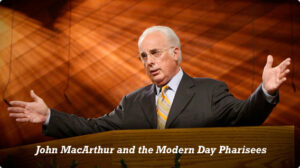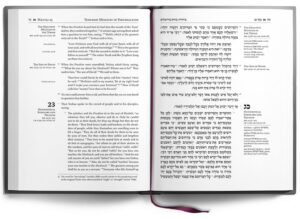
Apostles & Elders
Restoring the Church to the Original Blueprint
Giovanni Paolo Pannini, Apostle Paul Preaching on the Ruins
99.9% of pastors don’t get this…
A Return to the New Testament Church of the Book of Acts
That the pastor form of church government is unscriptural and that the vast majority of those with the “Pastor” title do not have the “pastor” calling of Ephesians 4:11, nor are they the elders described in the New Testament. Now before you get so peeved that you quit reading, I want you to know that I know these are hard words, I know they offend. No matter how I try to say them, they will be offensive to most who work in or attend a pastor-driven church, but they are the truth, and if you get this message, it is a truth that will set you free and onto the destiny that Jesus has for you.
Most pastors that I talk to don’t believe they need to be set free from the “pastor” form of church government, in fact, they like it. It’s what they know, it’s what they’ve been taught, it’s tradition, and for the most part it works for them. In Matthew 15 and Mark 7, Jesus says to the pharisees, “Isaiah was right when he prophesied about you…….you would rather keep the traditions of men than honor the commandments of God.” Now I’m not saying that most “pastors” are the bad pharisees of Scripture, but I am saying that they are caught up in the traditions of men and are not walking out the Scriptural principles of Jesus form of government. What I’m also saying is that most “pastors” are not Ephesian 4:11 “pastors”, but perhaps have another 4:11 calling, and until they find it or admit it, they can’t be fully effective in the work of the five main ministries.
In this lesson, I’m going to try to separate fact from fiction, tradition from commandment and get to what the Lord is doing in these “last days” regarding the government of His church. It is extremely important to understand that Jesus’ church is not a gentile church, nor a Jewish church or non-messianic synagogue, but a Messianic church comprised of Jew and Gentile believers. It is the Messiah’s church, and He is restoring it, in this day, to it’s original design and purpose.
I’m going to lay out the Blueprint, or at least part of it, that describes His government, and to do that, I have to first put into context the “pastor” of Ephesians 4:11 plus give a little history of how we got into this false governmental structure.
Before we start I want to be clear, this is not an attack on the men, the “pastors”, that labor in the vineyard, most are underpaid and overworked, but it is an attack on the unscriptural form of church government that is incapable of producing the results that the Lord wants and expects. So, what are some of these results that Jesus’ government produces, that the “pastor” form can’t:
- It makes every believer a disciple that can preach the message of the Kingdom and disciple new believers.
- It keeps doctrinal error out of the church.
- It equips the believer for the work of the ministry that they have been called to.
- It produces mature believers that are in unity with other believers.
- It sees that no one in the local church has lack or need.
I’m sure a lot of pastors believe they are accomplishing the above list, but sadly they are not. How do I know, because the members of their congregation are not healing the sick, casting out demons and raising the dead, which should be the basic skill sets represented in each local congregation. Plus, there is still too much lack and need in the churches and for most attendees of pastor-driven churches, church is a spectator sport, no matter what programs are listed in the church bulletin.
Misunderstandings and misconceptions believed by the church:
- That the “pastor” of Ephesians 4:11 is a senior position in the local church, in fact, many even have the title “senior pastor”.
- That the “pastor” of Ephesians 4:11 is a teaching position in the local church. Many commentators, such as John MacArthur, believe that the pastor and teacher of Ephesians 4:11 is a combined position. 1 Corinthians 12:28 disproves this, “And God has appointed in the church, first apostles, second prophets, third teachers,…..” It should be noted that “pastor”, or rather “shepherd”, which is the correct translation, nor “evangelist” are listed in 1 Corinthians chapter 12.
- That the “pastor” of Ephesians 4:11 is automatically an elder in the local church.
- That the five main ministries of Ephesians 4:11 are the government of the church.
- That the greek word poimēn in Ephesians 4:11 should be translated “pastor”.
- That there is one man in charge of the local church with elders to help and support him.
- That the pastor/teacher can equip the saints for the work of the ministry and bring them into maturity and unity. And for those in the current apostolic movement, I believe it is important to note the following misconceptions because they tie into the Blueprint for Jesus’ government:
- That apostles are over local churches, especially specific churches, and that the government of the local church is in the hands of the apostles and the five main ministries.
- That women can be apostles and/or elders.
- That this current movement by the Holy Spirit is about the apostles.
Facts:
• The word “apostle(s)” occurs 85 times in the New Testament. There are 14 apostles listed before Pentecost, 14 after Pentecost. (This is understood from the Greek manuscripts.)
• The word “prophet(s)” occurs over 150 times in the New Testament, about 20 of those occurrences referring distinctly to prophets in the Church Age.
• The word “teacher(s)” occurs 125 times in the New Testament.
• The word “evangelist(s)” occurs only 3 times in the New Testament.
• The word “pastor(s)” which should actually be translated shepherd occurs precisely one (1) time in the entire New Testament! One time! (Ephesians 4:11) Yet man has built an entire governmental structure on a mistranslation of the greek word poimēn. The word poimēn appears a total of 18 times in the New Testament, but only 3 times outside the Gospels, in Ephesians 4:11, Hebrews 13:20 and 1 Peter 2:25, and only once in relationship to the five main ministry calling of Ephesians 4:11. In Hebrews and 1 Peter poimēn refers to the Great Shepherd, Jesus.
So let’s consider and analyze the above referenced facts. The Bible speaks of New Testament apostles, prophets, or teachers a combined total of at 230 times, while pastors and evangelists are mentioned a combined total of four times! Nowhere in the New Testament is a pastor or evangelist listed as an elder, though we do have Philip the evangelist listed as a deacon, but every place one of the five main ministry callings of Ephesians 4:11 is listed as an elder, it is either an apostle, prophet or teacher. This does not preclude a pastor or evangelist from being an elder, in fact, the requirements for being an elder listed in Titus and 1 Timothy do not mention a five main ministry calling as a requirement. When we look at the function of a New Testament pastor, we’ll find it better suited for being a deacon, rather than an elder.
Pastors or Shepherds:
The Shepherd or Pastor ministry in Ephesians 4:11 needs to be separated from the overseer role of the elders of the New Testament church. This point is one that is greatly misunderstood by the vast majority of present day church leadership. Part of the reason for this misunderstanding is believing that “pastor” is a governmental office and that the function of overseer or shepherding done by an elder is an Ephesian 4:11 function. Later I will deal with elders, bishops, overseers and deacons.
Again the Greek word translated pastor by the King James translators in Ephesians 4:11 is poimēn and is the only place the word is translated pastor. Every where else it is translated shepherd.
The main functions of the Ephesian 4:11 shepherd or pastor are:
- A life laid down for the sheep in his or her care — The shepherd or shepherdess cannot live for themselves.
- Must know and be known personally by the sheep. This eliminates the ability to “pastor” a large church or congregation. The shepherd knows his sheep in a close personal relationship. In my experience shepherds and shepherdess’ work best in the home church environment.
- Speak and lead the sheep. In the middle east shepherds do not drive their sheep, they lead from the front speaking to the sheep who know the shepherds voice. The shepherd is known by his sheep and is always accessible.
- Responsible to feed the sheep with green pasture and provide them with pure water and protect them from evil beasts and robbers. In other words, take care of their daily needs. As I said earlier, providing for the needs of the individual sheep is more the function of the deacon than the elder whose primary function is to the Word and prayer (Acts 6:4) and for some elders, to teaching (1 Timothy 5:17).
The Blueprint for the Church
The Blueprint is really simple once you have the keys to read it. And one of the main keysis the principle that all leadership, both locally and trans-locally, or universally, is based on a plurality of leaders. The model for this is the Godhead itself, Father, Son and Holy Spirit, who are all equal to one another, yet they consult one another, and prefer one another. Jesus said in John 10:30, “I and my Father are one”; and in Philippians 2:6, “Who, being in very nature God, did not consider equality with God something to be used to his own advantage;”.
In this plurality model there can be a first amongst equals. The Latin Primus inter pares or Greek Πρῶτος μεταξὺ ἴσων (protos metaxy ison) means: the first among equals or first among peers, and is a phrase describing the most senior person of a group sharing the same rank or office. In the Godhead that would be the Father, in Acts 15, we see that would be James speaking for the apostles/elders in Jerusalem. It would be the apostle Paul in his apostolic company, even though Paul refers to the other apostles as his coworkers in the Gospel.
The purpose for plurality and equality is so one man does not rule or dictate over others, which can lead to abuse or doctrinal error. A plurality of leadership is Jesus way of safeguarding His flock, His checks and balance system. The other checks and balance is the relationship between local elders and apostles, but that’s for another lesson. Leadership must always come into agreement and be able to say, “For it seemed good to the Holy Spirit and to us…..” (Acts 15”28).
Unfortunately in the body of Christ today most churches have rule by one, with elders or a board, who can be terminated and replaced by the one, serving in a secondary role. This isn’t the only system of church government alive and well on planet earth, but again that’s for another lesson.
A second key is found in the understanding that Jesus is both King and Priest in the order of Melchizedek. It is obvious that this is a tough one or the writer of Hebrews would not have said so in Hebrews 5:5-14, which I think is important enough to quote in its entirety.
5 So also Christ did not glorify Himself so as to become a high priest, but He who said to Him, “You are My Son, Today I have begotten You”; 6 just as He says also in another passage, “ You are a priest forever According to the order of Melchizedek.”
7 In the days of His flesh, He offered up both prayers and supplications with loud crying and tears to the One able to save Him from death, and He was heard because of His piety. 8 Although He was a Son, He learned obedience from the things which He suffered. 9 And having been made perfect, He became to all those who obey Him the source of eternal salvation, 10 being designated by God as a high priest according to the order of Melchizedek.
11 Concerning him we have much to say, and it is hard to explain, since you have become dull of hearing. 12 For though by this time you ought to be teachers, you have need again for someone to teach you the elementary principles of the oracles of God, and you have come to need milk and not solid food. 13 For everyone who partakes only of milk is not accustomed to the word of righteousness, for he is an infant. 14 But solid food is for the mature, who because of practice have their senses trained to discern good and evil.”
This passage is worthy of an entire teaching in and of itself, but I’ll save that for another day. What I want to convey is this, that too many in leadership, especially apostles, elders and pastors, have no clue how this is a key to the Kingdom. They (we) are “dull of hearing…(when we) ought to be teachers (of this as a key to the Kingdom), (we) you have need again for someone to teach you the elementary principles of the oracles of God,…”
Melchizedek and his kingship and priesthood is spelled out in Genesis 14:18-20, Psalm 110:4 and Hebrews 7:1-2 in addition to above verses. What we need to understand is that Kingship represents His government and Priesthood His ministry. Jesus government on earth is vested in the apostles and elders and His ministry is vested in the five main ministries of Ephesians 4:11, plus 1 Corinthians 12 and Romans 12. Understanding this Divine Order allows the body of Christ to function smoothly and achieve all that we’ve been called to do. It is essential that all apostles and elders be able to teach this truth.
The third key, and not the least, is that the local church is assigned to a geographic location, and that the authority of the local church is just that, local, I’ll deal with the universal, or catholic (not to be confused with the Roman Catholic religion) church in another post. As you should recall from an earlier teaching, the Greek word for church is ἐκκλησία (ekklesia) which is better translated congregation or assembly. In the King James it is used to describe a church 115 times, broken down as a city church 35 times, a house church 4 times, as churches in a province 36 times, a local church 16 times, the universal church 20 times, an assembly of the city (Ephesus) 3 times, and the Old Testament church in the wilderness 1 time.
The concept is that the local church fits into the geographic boundaries established by God through man. So it is the church at Ephesus, or the church at Jerusalem, or the church in San Antonio or Columbus. And the apostles are suppose to appoint elders over these local churches as defined by a geographic area. But what we have now is that man in his infinite wisdom has established many autonomous churches in any given geographic area each ruled by their own self-appointed elders and leaders, producing disunity and a lack of maturity and a total lack of power.
Satan understands the rules of engagement and has set his principalities and powers over geographic regions and cities. He is winning because the only way the church can have enough firepower to defeat the devil is by a unified effort in any geographic location. I don’t want to take the time now to go into a detailed description of how this spiritual battle is to be fought, but suffice to say, we cannot achieve “thy Kingdom come on earth as it is in heaven”, until we fully understand the rules of engagement.
Join The Community!
Sign-up to the newsletter to receive exclusive content and news from [Author Name]


